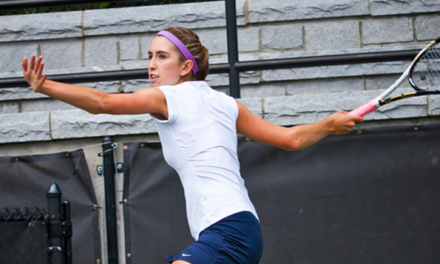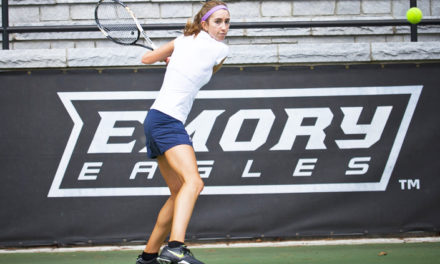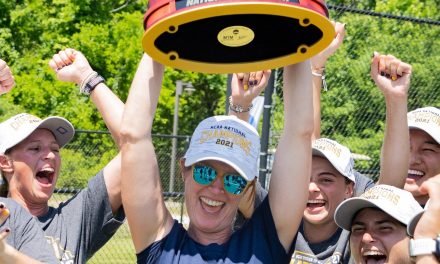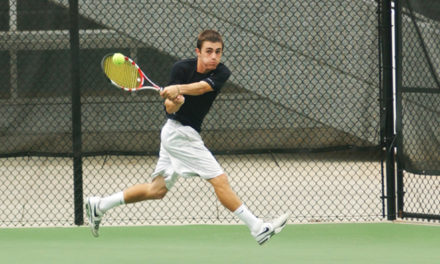Senior tennis team captain Andrew Harrington’s journey to a successful collegiate tennis career has involved many twists and turns. He transferred from the University of Miami to Emory after one year. Harrington made an explosive impact during first year with the Eagles, but he suffered an ankle injury that prevented him from competing most of his junior season. This year, Harrington has returned as an integral part of the team.
Harrington faced a drastically different set of circumstances at Miami as a freshman playing tennis compared to at Emory. One major difference between the schools is the level of competition, he said. Transitioning from the NCAA Division I to the Division III level changed his perspective on the court.
“At Emory, we’re big dogs where we’re top five in the country,” Harrington said. “We were on the lower end at Miami but played professional-caliber players at other schools.”
Harrington made an instant impact as a sophomore on the team, posting an overall singles record of 21-9 on the season and winning 16 out of 23 matches during the spring. He was able to seize the opportunity and prove himself as an elite-level player. Harrington was a major contributor to a nearly undefeated season for the team.
The team ultimately fell short of one of their major goals for the season, despite Harrington’s standout performance. They lost in the 2016 National Semifinals to Bowdoin College (Maine) 5-4.
During his junior year, Harrington dealt with an ankle injury during which he could not build on his sophomore season in the way he had hoped. However, his temporary absence from the court gave him a new approach to his play when he returned as a senior.
“I used the motivation of not winning a championship as a sophomore [to try to win a championship this year],” Harrington said.
Harrington’s primary goal during his comeback has been contributing to the court as much as possible in his final year as an Eagle, and he has not only made his biggest impact of his career as a team player, but also as team captain, a role that he doesn’t take lightly.
“I always volunteer and say, ‘If you guys need to work on anything, let me know,’ ” Harrington said. “Winning a championship is a team effort, and you want to set a good example. If you work hard, it well get them to want to work hard, too.”
Harrington’s journey with the team has helped him to make big strides in his on-court ability and mentality toward the game. As a sophomore, he would easily get frustrated and lose focus when he made mistakes on the court. Since then, he has become much better at responding to mistakes and maintaining his focus, especially this year given his new sense of urgency.
“I know my tennis days are numbered,” Harrington said. “Just the fact that it’s all coming to an end has pushed me to reach a level that I wasn’t at previously. It has made competing a lot more enjoyable and has made me cherish the moment.”
When playing tennis, Harrington said he has realized that what matters most is leaving his best game on the court and enjoying the game.
“You can’t control your outcomes,” Harrington said. “All you can control is whether you gave 100 percent and fought [to] the best of your ability and [showed] a good attitude. With that, results tend to come.”
Harrington is still motivated to win by the redemption from falling short in his sophomore year. He wants to finish his career on a high note and go undefeated for the season en route to a second straight national championship.
Harrington strives to make a lasting impact on the team before he graduates this spring.
“I’m going to die on the court before I get off the court for every match,” Harrington said. “I don’t want to walk away with any regrets.”
Harrington’s chances for success look promising, as the Eagles are in a great position this season to claim back-to-back Division III National Championships for the first time in school history.





